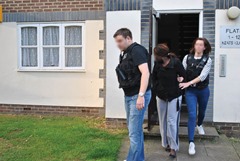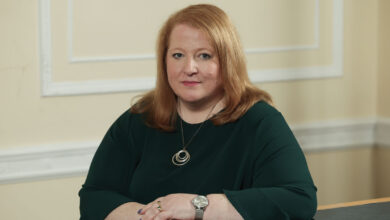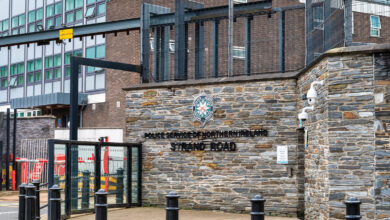Plans to tackle human trafficking
 Following on from a widespread public debate about human trafficking, Justice Minister David Ford has launched a consultation on improving how Northern Ireland’s justice system responds to the crime. “Human trafficking and slavery are appalling, degrading crimes which devastate the lives of victims and their families,” Ford said. “I want to strengthen the tools with which our law enforcement bodies can use to tackle these wrongs and which give more options to the courts, and introduce statutory oversight through a United Kingdom-wide Commissioner.”
Following on from a widespread public debate about human trafficking, Justice Minister David Ford has launched a consultation on improving how Northern Ireland’s justice system responds to the crime. “Human trafficking and slavery are appalling, degrading crimes which devastate the lives of victims and their families,” Ford said. “I want to strengthen the tools with which our law enforcement bodies can use to tackle these wrongs and which give more options to the courts, and introduce statutory oversight through a United Kingdom-wide Commissioner.”
The consultation started on 21 January and will run until 15 April. The Minister’s proposals include the creation of a new offence of human trafficking to cover all forms of exploitation, new offences of slavery, servitude and forced or compulsory labour, and the removal of the option to try slavery, servitude or forced labour cases summarily.
The Anti-Slavery Commissioner, proposed by the Home Secretary, would hold law enforcement agencies to account for progress against trafficking.
DUP MLA Maurice Morrow’s Human Trafficking Bill passed its second stage in the Assembly on 24 September last year. Ford and Morrow have co-authored a joint letter which summarises the points on which they agree.
Media attention has focused on Morrow’s proposal to ban prostitution, although his Bill mainly covers compensation, legal protection for victims and aggravating factors. Its committee report is to be published by 11 April.





